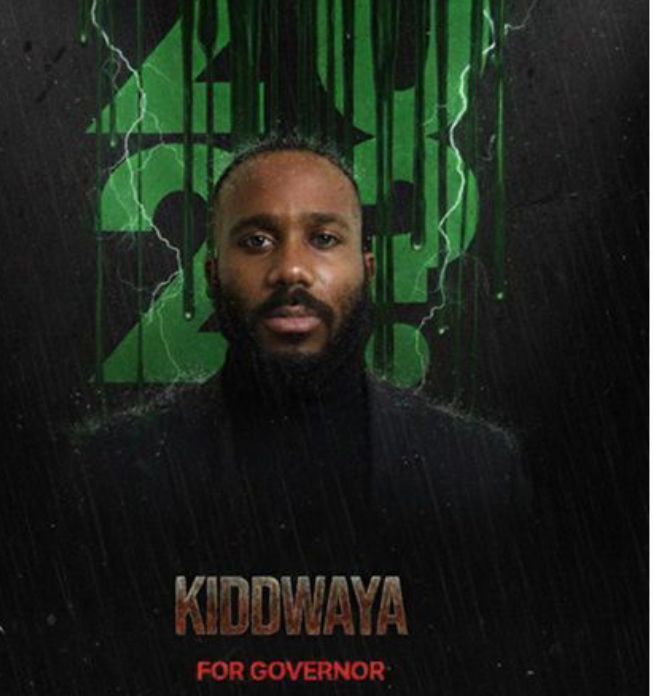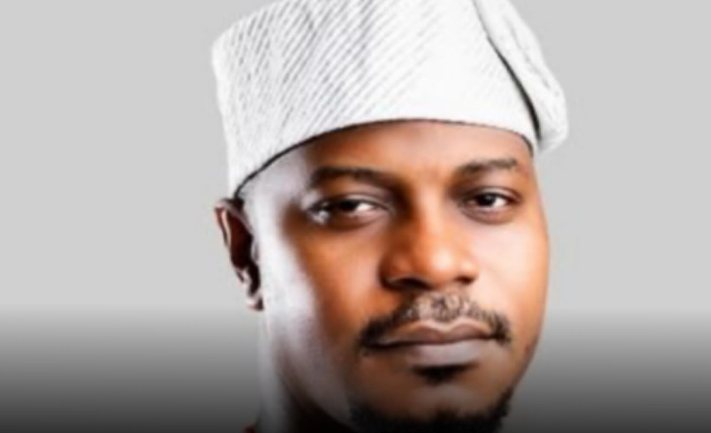
Kiddwaya Fires Back with Humor After Being Brutally Dragged Over His “I’d Win as Governor” Claim

In a country where political declarations can spark instant debates, former Big Brother Naija housemate and billionaire heir Terseer Kiddwaya found himself at the center of a fiery exchange after boldly stating that he could run for governor and win. What followed was a dramatic online face-off that blended harsh criticism, literary insult, and unexpected humor—ending with Kiddwaya delivering a surprisingly calm, witty response that has now taken over Nigerian social media.
It all began when Kiddwaya posted a seemingly casual statement on X (formerly Twitter), saying, “I’d run for governor and still win. Is this not Nigeria.” It was a comment many interpreted as tongue-in-cheek commentary on Nigeria’s political realities—where popularity, influence, and lineage often play outsized roles. But for others, the message came across as yet another display of the confidence, or arrogance depending on who you ask, that Kiddwaya is known for.
Among those who took the comment far more personally was an X user identified as Chief John Oladapo (@besq0), who unleashed one of the most brutal, poetic, and scathing criticisms seen on the app in recent months. His reply read like a piece crafted from equal parts anger and creative writing flair, describing Kiddwaya as “the human equivalent of a damp cellar where mould grows over forgotten things” and accusing him of embodying “a greasy smugness” that “clings the way stench clings to spoiled meat.”
Oladapo’s tirade didn’t stop there. He went on to paint an even darker portrait of Kiddwaya, suggesting his presence “oozes venomous little nothings of uttermost vanity” and claiming that his soul—if he even possessed one—was “pickled in cowardice and spite.” The climax of the fiery monologue was the closing jab: “To look at you is to glimpse the worst possibilities of humanity congealed into one walking, festering disappointment nicknamed Kiddwaya. Like father, like a worse off son.”
For many celebrities, such a personal and elaborate attack would have triggered an equally aggressive clapback, a defensive rant, or days of online arguments. But in an unexpected twist, Kiddwaya responded with what many have now described as one of the smoothest, most disarming replies of the year. Quote-tweeting the lengthy insult, he simply wrote: “What a beautiful poem. This needs a violin.”
The reaction was instant. Social media erupted—not because of the initial attack, but because of Kiddwaya’s calm, comedic deflection. Instead of fueling the fire, he elevated the moment into a performance, almost as if the entire exchange were a scene in a satirical movie about Nigerian politics and online culture. Many users praised him for not letting the emotionally charged and highly descriptive tirade shake his confidence. Others commended his sense of humor, saying his response diffused the hostility with elegance.
The episode has also sparked a wider conversation online about the intensity of political discussions in the country. Nigeria’s unpredictable political environment—where celebrities, businessmen, and influencers often hint at running for office—frequently leads to polarized reactions. Some believe Kiddwaya’s initial comment was a deliberate social experiment to gauge public sentiment about influential figures venturing into politics. Others think it was nothing more than a tongue-in-cheek observation blown out of proportion.
Still, the harshness of the reply from Chief Oladapo left many stunned. While Nigerians are known for their sharp tongues and vibrant online culture, the poetic venom in his message struck many as unusually personal. Yet, ironically, it was the same intensity of his words that made Kiddwaya’s lighthearted comeback even more impactful. The billionaire heir seemed to embrace the criticism as entertainment rather than an attack, prompting many to wonder if he had anticipated controversy from the moment he posted his initial tweet.
Influencers and social commentators have chimed in, analyzing the exchange like literary critics discussing the themes of a dramatic novel. Some called Oladapo’s rant “Shakespearean in rage,” while others jokingly suggested Nigeria should recruit him for national poetry competitions. Meanwhile, Kiddwaya’s supporters insist his response shows a level of maturity and emotional stability rare among public figures faced with online hostility.
There is also a growing trend among Nigerian celebrities choosing humor over confrontation when dealing with trolls. As public scrutiny continues to intensify on social platforms, many stars have adopted a softer, comedic, or even philosophical approach to dealing with negativity. Kiddwaya’s reaction appears to follow this new wave, one that prioritizes emotional intelligence and self-assurance over defensive retaliation.
As the story continues to spread, some fans now argue that Kiddwaya’s humorous response may ironically strengthen his claim that he could win if he ran for governor. They point out that political success in Nigeria often requires charisma, thick skin, and the ability to handle attacks gracefully—qualities many believe he displayed in this exchange. Others remain convinced that his comment was not meant to be taken seriously, but rather a playful jab at Nigeria’s unpredictable political landscape.
Whether or not Kiddwaya genuinely has political ambitions remains unclear. But what is clear is that he has once again managed to set the internet buzzing, not through controversy alone, but through a moment that blended satire, criticism, and humor in a way that only Nigerian social media can produce. The incident has now become a reminder of how quickly political conversations can flare up in the digital age—and how a well-timed joke can shift the entire narrative.
For now, Kiddwaya seems unfazed, unfaltering, and perhaps even amused by the entire drama. And if nothing else, he has proven that in the chaotic, often unforgiving arena of Nigerian social media, sometimes the best weapon is not anger or defensiveness, but a violin.


